UNDERSTANDING FOUR VIEWS ON THE LORDS SUPPER
Books in the Counterpoints Series
Church Life
Evaluating the Church Growth Movement
Exploring the Worship Spectrum
Remarriage after Divorce in Todays Church
Understanding Four Views on Baptism
Understanding Four Views on the Lords Supper
Who Runs the Church?
Exploring Theology
Are Miraculous Gifts for Today?
Five Views on Apologetics
Five Views on Law and Gospel
Five Views on Sanctification
Four Views on Eternal Security
Four Views on Hell
Four Views on Salvation in a Pluralistic World
Four Views on the Book of Revelation
How Jewish Is Christianity?
Show Them No Mercy
Three Views on Creation and Evolution
Three Views on Eastern Orthodoxy and Evangelicalism
Three Views on the Millennium and Beyond
Three Views on the Rapture
Two Views on Women in Ministry
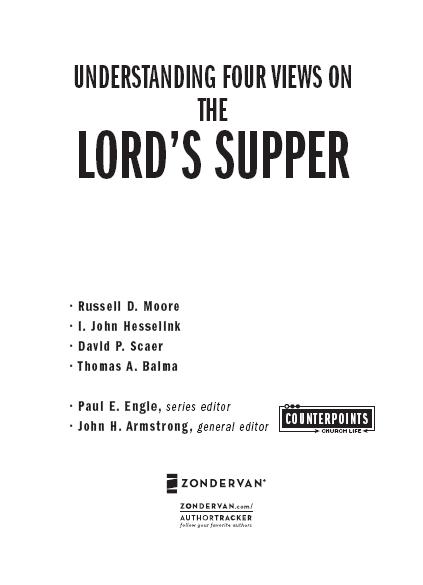
ZONDERVAN
Understanding Four Views on the Lords Supper
Copyright 2007 by John H. Armstrong
All rights reserved under International and Pan-American Copyright Conventions. By payment of the required fees, you have been granted the non-exclusive, non-transferable right to access and read the text of this e-book on-screen. No part of this text may be reproduced, transmitted, down-loaded, decompiled, reverse engineered, or stored in or introduced into any information storage and retrieval system, in any form or by any means, whether electronic or mechanical, now known or hereinafter invented, without the express written permission of Zondervan.
ePub Edition January 2009 ISBN: 978-0-310-54275-9
Requests for information should be addressed to:
Zondervan, Grand Rapids, Michigan 49530
Library of Congress Cataloging-in-Publication Data
Moore, Russell, 1971.
Understanding four views on the Lords Supper / Russell D. Moore.
p. cm. (Counterpoints : church life)
Includes bibliographical references and index.
ISBN-13: 978-0-310-26268-8
1. Lords Supper. I. Title.
BV825.3.M66 2007
234'.163 dc22
2007014707
All Scripture quotations, unless otherwise indicated, are taken from the Holy Bible: NewInternational Version. NIV. Copyright 1973, 1978, 1984 by International Bible Society. Used by permission of Zondervan. All rights reserved.
Scripture references marked TNIV are taken from the Holy Bible, Todays New InternationalVersion. TNIV. Copyright 2001, 2005 by International Bible Society. Used by permission of Zondervan. All rights reserved.
Scripture quotations marked NASB are taken from the New American Standard Bible. Copyright 1960, 1962, 1963, 1968, 1971, 1972, 1973, 1975, 1977, 1995 by The Lockman Foundation. Used by permission.
Scripture quotations marked KJV are taken from the King James Version of the Bible.
Internet addresses (websites, blogs, etc.) printed in this book are offered as a resource to you. These are not intended in any way to be or imply an endorsement on the part of Zondervan, nor do we vouch for the content of these sites for the life of this book.
All rights reserved. No part of this publication may be reproduced, stored in a retrieval system, or transmitted in any form or by any means electronic, mechanical, photocopy, recording, or any other except for brief quotations in printed reviews, without the prior permission of the publisher.
07 08 09 10 11 12  23 22 21 20 19 18 17 16 15 14 13 12 11 10 9 8 7 6 5 4 3 2 1
23 22 21 20 19 18 17 16 15 14 13 12 11 10 9 8 7 6 5 4 3 2 1
CONTENTS
JOHN H. ARMSTRONG
RUSSELL D. MOORE
I. JOHN HESSELINK
DAVID P. SCAER
THOMAS A. BAIMA
I. JOHN HESSELINK
RUSSELL D. MOORE
DAVID P. SCAER
THOMAS A. BAIMA
DAVID P. SCAER
RUSSELL D. MOORE
I. JOHN HESSELINK
THOMAS A. BAIMA
THOMAS A. BAIMA
RUSSELL D. MOORE
I. JOHN HESSELINK
DAVID P. SCAER
JOHN H. ARMSTRONG



John H. Armstrong
From my earliest remembrance, as I was growing up in an evangelical Christian church, I thought often about the Lords Supper. In front of me every week, in a plain and mostly unadorned sanctuary, were the words of the Lord Jesus, carved into the table below the pulpit: Do This in Remembrance of Me. This meal was not celebrated very often in my home church, but when it was included in our worship, it had a strong attraction for me. I remembering asking my parents, When can I take it? and, What does this mean? Or even, Why do we do this? (I even recall asking, Why do we do this so infrequently?) The answers I got were not entirely satisfactory. But the attraction I felt to this celebration grew even stronger over time. To many of my friends the ceremony seemed somber, but to me it was thrilling, a time filled with hope and joy. I understood that it was vitally important for my life as a Christian, but I had no idea why. I also knew that I wanted to partake of it as a Christian who truly loves the Lord.
How odd it is that we Christians need to be reminded by a simple and recurring meal. We have been redeemed through the precious blood of our Messiah, Jesus, yet we are prone to forget his great act of sacrifice. But our Lord understands perfectly well our weakness and thus made provision for us to come again and again to this table so that we do not forget.
More than five decades later, I am still thinking about this awesome and simple meal. Why is this ceremony so important for Christians? What is the appeal in the taking of bread and wine to remember Christs death in our gathered church meetings? And why is it that this particular meal is still practiced by almost every Christian alive today when Christians have consistently disagreed about its precise meaning for nearly twenty centuries?
Donald Bridge and David Phypers, in a helpful overview of the Lords Supper, describe an imaginary viewer watching a religious channel on television. He sees many sights, sounds, and forms coming from various Christian groups all over the world. In the midst of this wide-ranging diversity, he takes note of the following:
[There] is one thing the oddly different groups do have in common. They all make rather special use of bread and wine. The use they make of it is bewilderingly different, but they all use it. If [this viewer] sticks with the program for a few weeks, he will soon discover that Christians have not only done different things with the bread and wine, but have done terrible things to each other because of it. Men and women have been imprisoned, whipped, pilloried, tortured, and burned alive because of differing opinions about what really happens when Christians eat bread and drink wine and remember their Lord.
All Christians the world over trace their practice of the Lords Supper back to that evening prior to Jesus horrific death when he shared a final meal with his disciples in a large upper room (Luke 22:12). During that meal Jesus said to his followers, first of the bread that he gave to them, This is my body (Matt. 26:26), then later of the cup, which he also gave to them, This is my blood of the covenant (Matt. 26:28). In so doing, Jesus commanded his followers that they should do this in remembrance of me (Luke 22:19). It appears he intended that they would celebrate this meal again and again. This is how the apostle Paul understood the event, since we read that both the bread and the cup should be taken in remembrance of me [Jesus], just as Jesus commanded (1 Cor. 11:24 25).
Next page
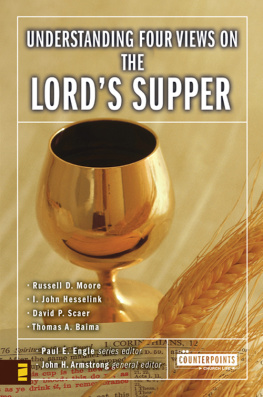
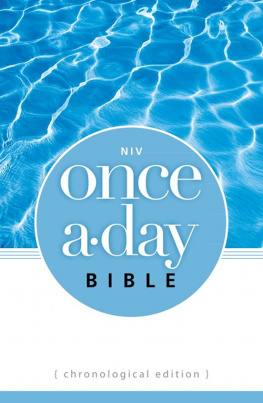
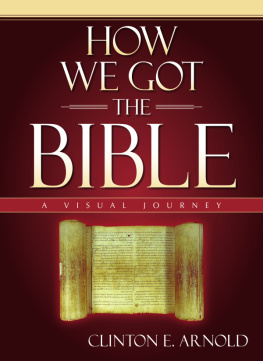
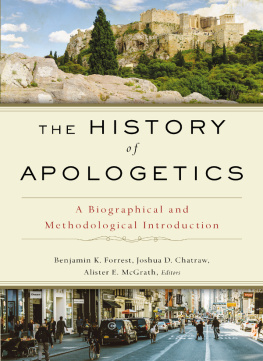
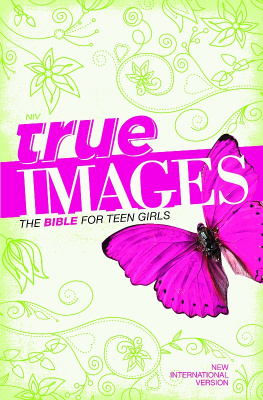
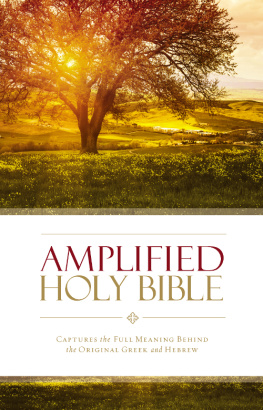
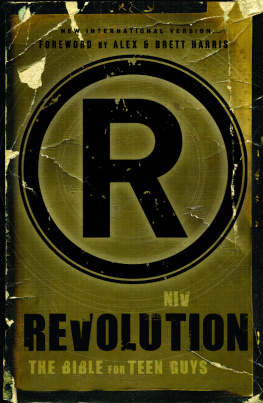
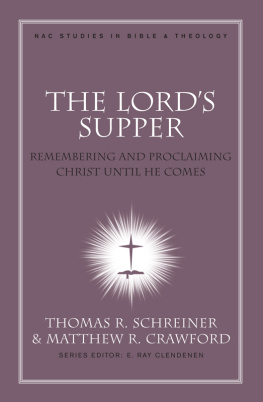
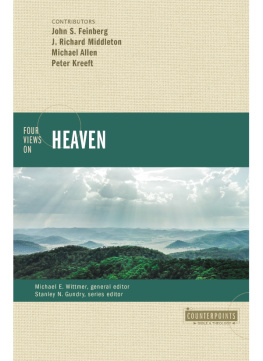
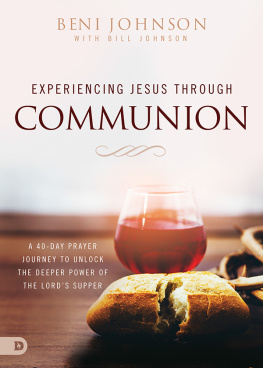

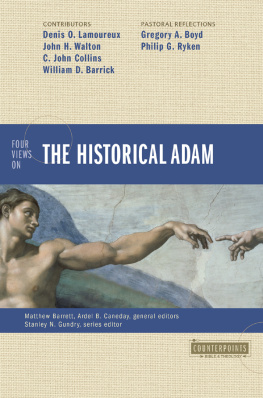
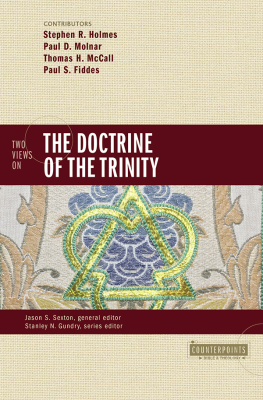
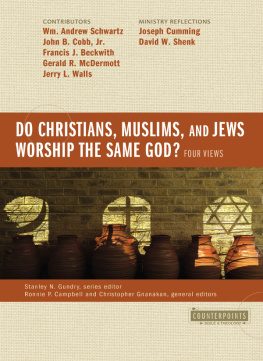
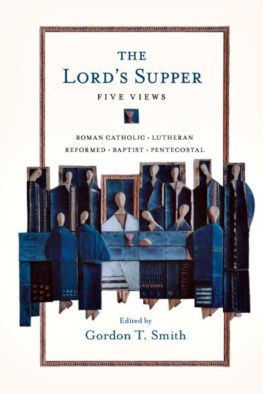
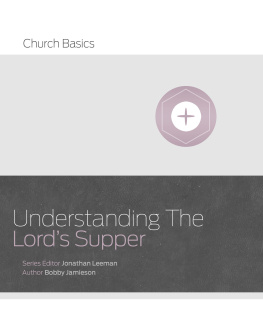
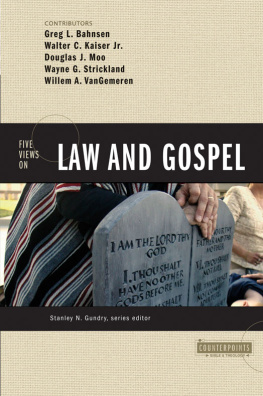

 23 22 21 20 19 18 17 16 15 14 13 12 11 10 9 8 7 6 5 4 3 2 1
23 22 21 20 19 18 17 16 15 14 13 12 11 10 9 8 7 6 5 4 3 2 1

